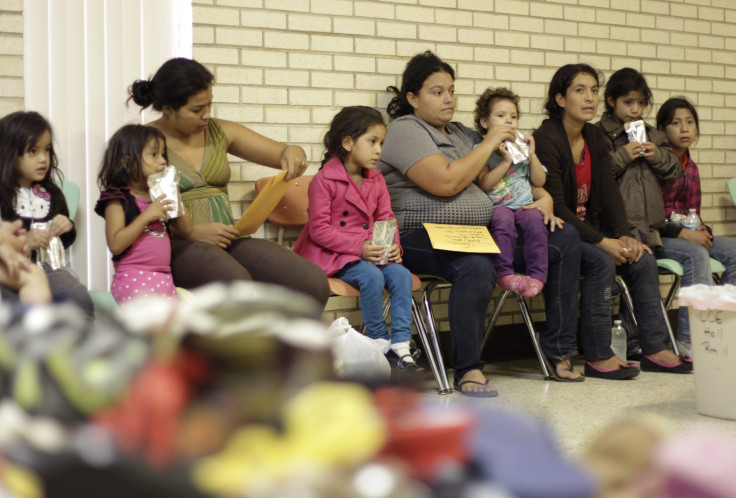For Child Migrants In Court, Access To A Lawyer Depends On Chance

For the tens of thousands of Central American unaccompanied children who have entered into the United States in recent years, the journey doesn’t stop at the border: They must appear at an immigration hearing where a judge decides if they have legal relief to stay in the country. But only about half of these children are represented by a lawyer in court.
About 48 percent of unaccompanied children whose immigration cases were decided between 2005 and June 2014 went through their hearings without legal representation, according to Syracuse University’s Transactional Records Access Clearinghouse (TRAC) Immigration Project. TRAC’s data further estimates that only 31 percent of children with pending immigration cases have secured attorneys. Meanwhile, a prosecutor from the Immigration and Customs Enforcement agency is always present at hearings to represent the government.
Because immigration courts are civil courts, not criminal, defendants are not offered a government-appointed attorney to help argue their cases. And because so many undocumented immigrants – particularly in this latest wave of Central American children – cannot afford a private attorney, pro bono legal services often step in to provide counseling and representation. But Beth Werlin, deputy director at the American Immigration Council, says the high demand for these pro bono services has stretched the resources of available attorneys.
“There’s a whole network of service providers who do intakes with these kids,” Werlin said. “A lot of these kids, through these networks, are able to find volunteer lawyers who come in and try to help. It’s great for the kids if that works out for them, but the need is just so overwhelming that the volunteers haven’t been able to keep up.”
Furthermore, she added, location makes a difference in getting access to pro bono services – which leaves the probability of securing an attorney up to chance.
“Certain parts of the country have less-developed networks,” she said. “And putting detention facilities in remote areas means there’s not a network of lawyers available for the children.”
TRAC’s numbers suggest that having an immigration attorney makes a big difference in the outcome of a case: Between 2005 and June 2014, 66 percent of unaccompanied children who were represented by a lawyer in court were able to stay in the United States, as opposed to just 10 percent of those who did not have an attorney.
Without an immigration lawyer, children have only two choices: represent themselves in court or skip the hearing altogether. The former is at the heart of a class action suit filed last week by the American Immigration Council, the American Civil Liberties Union, and a handful of other legal organizations. The lawsuit argues that children do not have the capacity to understand the full range of legal options and requirements needed to win their case, and deserve the right to due process when their lives may be at stake if they're returned to their home countries.
Claire Thomas, an attorney with the New York-based Safe Passage Project, recalled an instance where an 11-year-old boy, when questioned in an initial meeting with volunteer attorneys, said he came to the United States from El Salvador in order to reunite with his father. But later the boy revealed that his sister's ex-boyfriend, a gang member in El Salvador, had threatened him and fired a gun right above the boy's ear. The sister then arranged money to send the boy with a coyote (human smuggler) to take him through Mexico and into the United States, where he could reunite with their father.
"And so this boy came here and told us, 'I'm coming here to reunite with my father,' which is true. But at that first initial meeting he didn't tell us the other details. He didn't have the words or wherewithal to express that and realize that's actually important," Thomas said.
The boy was eventually granted asylum. "But without a lawyer or an advocate to meet with him and understand him and give him the time he needed, I'm not sure what would have happened," Thomas added.
If a child simply does not show up to court, the judge can issue an order of removal in absentia. The question of how often children fail to appear in court is at the center of another brewing debate over how the Obama administration should handle the influx of Central American child migrants. While estimates vary on what proportion of children fail to appear in court, Republican lawmakers have argued that skipping their hearings is an easy way for child migrants to circumvent the law and stay in the United States. Immigrant rights advocates say the children sometimes do not even understand that they have to go to court, further emphasizing the need for more comprehensive legal support.
© Copyright IBTimes 2024. All rights reserved.






















